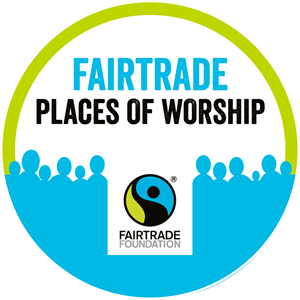 The Diocese of Leeds is committed to sharing and supporting Fairtrade.
The Diocese of Leeds is committed to sharing and supporting Fairtrade.
At Diocesan Synod in 2016 a motion was approved supporting this commitment, which was reaffirmed with another vote at Synod in 2024.
The diocese aims to take steps to ensure that all deaneries, parishes and schools are encouraged in sourcing Fairtrade products, promoting Fairtrade principles and participating in Fairtrade campaigns. This includes ensuring that diocesan events use Fairtrade products and incorporating Fairtrade into Diocesan purchasing policies where possible, as well as disseminating information to all parishes encouraging active participation in Fairtrade Fortnight.
Please find below resources, support and answers to some frequently asked questions.
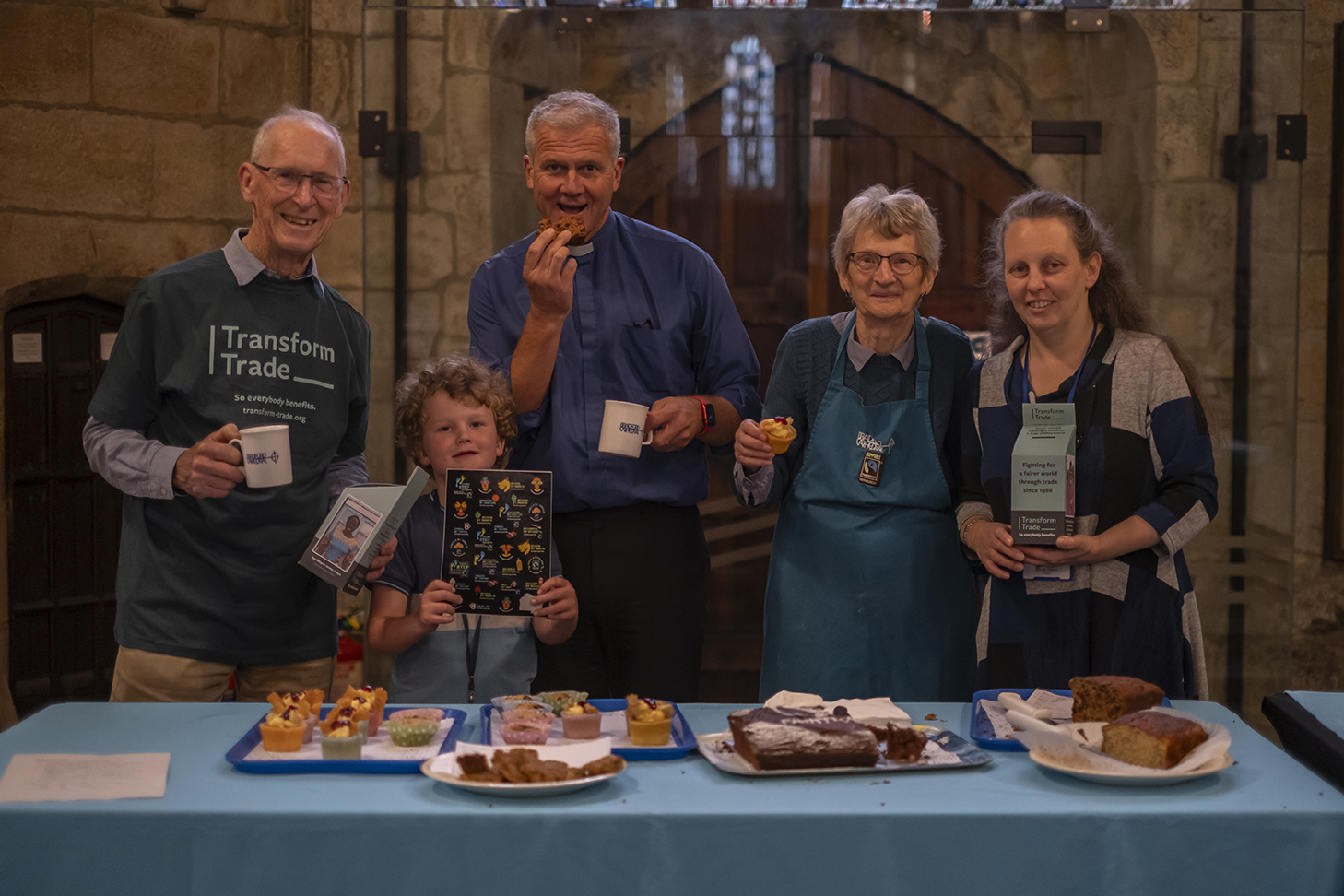 Fairtrade Fortnight - Monday, September 22 to Sunday, October 5
Fairtrade Fortnight - Monday, September 22 to Sunday, October 5
Fairtrade Fortnight runs from Monday, September 22 to Sunday, October 5, and is a chance for churches, schools and individuals to celebrate and stand with the people around the world behind important everyday products.
This year, the ‘Do It Fair’ campaign aims to shine a light on the tea industry and the people behind our cups of tea who deserve to live with dignity and encourage consumers to demand fairness from crop to cup.
There are expected to be more than 400 tea parties across the UK this year, looking to spotlight the human and environmental costs behind our cups of tea.
To find out more about Fairtrade Fortnight, the ‘Do It Fair’ campaign and how you can get involved, please click here.
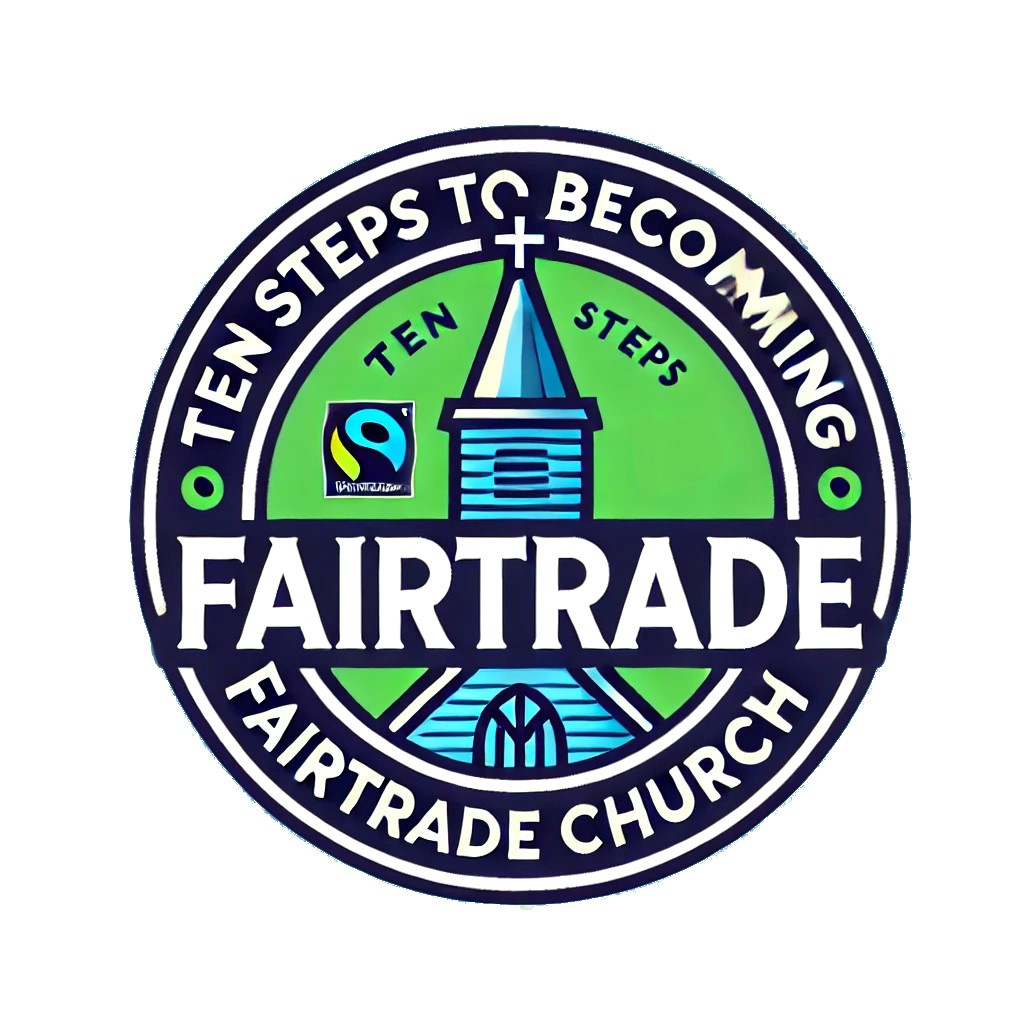 Ten Steps to Becoming a Fairtrade Church
Ten Steps to Becoming a Fairtrade Church
- Commitment from Leadership: Begin by securing the support of church leadership. This could be the clergy, the PCC, or other influential figures within the congregation who can advocate for Fairtrade principles.
- Educate the Congregation: Host educational sessions or sermons that discuss what Fairtrade is, why it matters, and how it can reflect the values of your community. Use resources like videos, guest speakers, and literature to help illuminate the issues.
- Form a Fairtrade Committee: Establish a committee dedicated to implementing and maintaining Fairtrade principles within your church. This group will lead efforts, organise events, and ensure ongoing commitment.
- Adopt a Fairtrade Policy: Draft and officially adopt a church policy on Fairtrade. This policy should commit to using Fairtrade products wherever possible, such as for tea, coffee, and sugar at church events and meetings. A draft policy can be found here. You can then apply to the Fairtrade Foundation to become a recognised Fairtrade church displaying your certificate.
- Switch to Fairtrade Products: Start using Fairtrade products in your church. Begin with easily substitutable goods like coffee, tea, and sugar at all church functions, and then look at other products like chocolate, biscuits, and even cotton altar cloths.
- Promote Fairtrade Products: Encourage the congregation to purchase Fairtrade products both for use in their homes and as part of their everyday shopping habits. You could host a Fairtrade product day or have a stall selling Fairtrade goods.
- Fundraising and Awareness Events: Organise fundraising events that highlight Fairtrade, such as themed fairs, breakfasts, or bake sales using Fairtrade ingredients. Use these events to raise awareness and educate the wider community.
- Engage with Wider Campaigns: Participate in wider Fairtrade campaigns like Fairtrade Fortnight and connect with other Fairtrade churches and organisations to share ideas and support each other’s events.
- Communicate and Advocate: Use newsletters, social media, and notice boards to spread the word about your church’s commitment to Fairtrade. Encourage discussions around ethical purchasing and the impact of Fairtrade.
- Review and Renew Commitment: Regularly review your commitment and the impact your church has made by supporting Fairtrade. This can help maintain enthusiasm and ensure that the commitment is still effective and relevant.
By following these steps, your church can make a significant difference in supporting ethical and sustainable trading practices that benefit producers in developing countries.
Introduction to the 10 Principles of Fairtrade Bible Study Guide
This is a Bible study guide designed for UK-based churches and followers of Jesus Christ to explore the Fairtrade movement through a biblical lens. By reflecting on how we consume products, engage with business practices, and trade globally, we seek to align these choices with the teachings of Jesus. The guide can be found here.
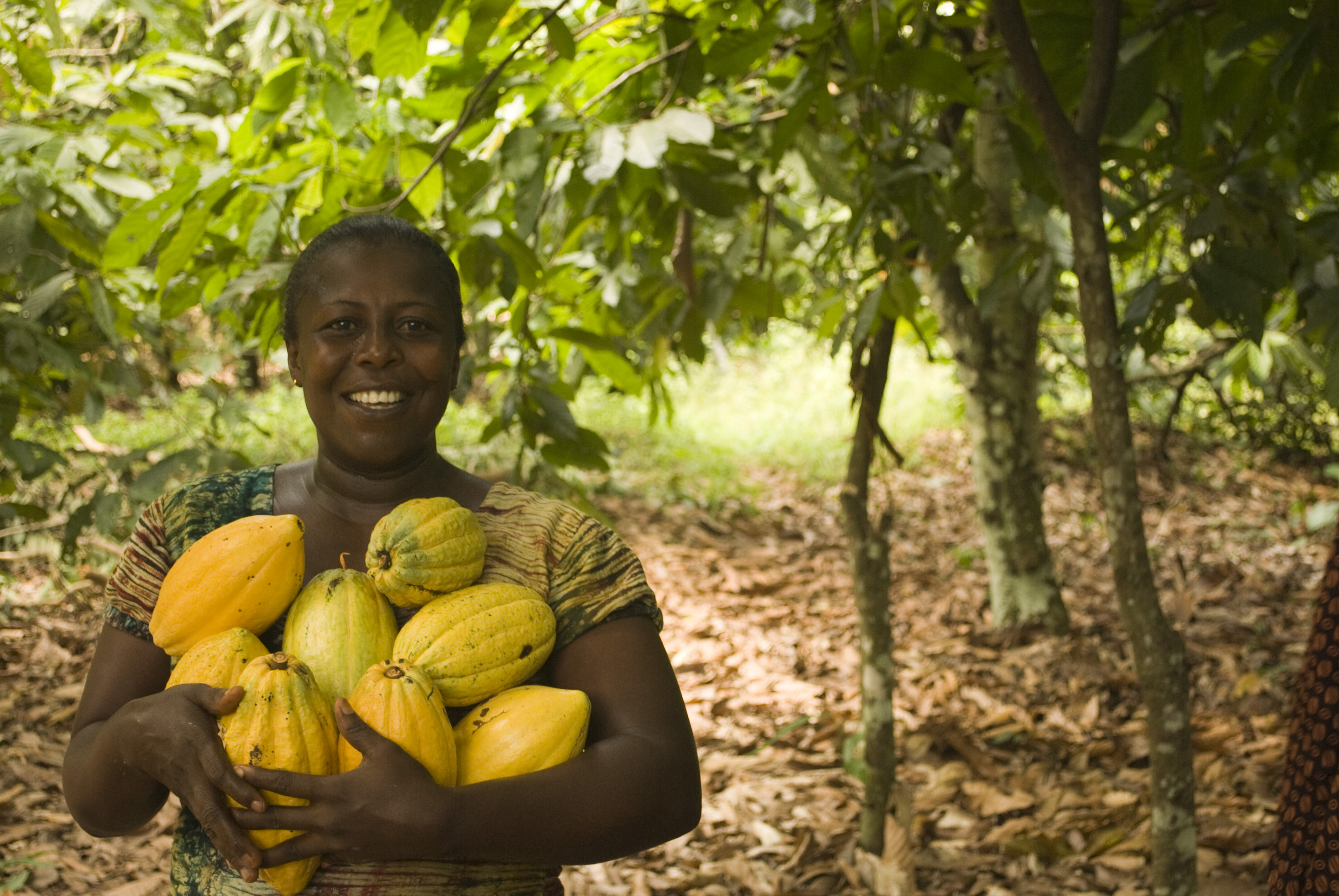 Common questions and answers about Fairtrade
Common questions and answers about Fairtrade
What is Fairtrade?
Fairtrade is a global movement aimed at ensuring fair prices, decent working conditions, and sustainable practices for farmers and workers in developing countries. It involves certifying products that meet specific social, economic, and environmental standards, ensuring fair wages and contributions to community development.
How does Fairtrade benefit farmers?
Fairtrade guarantees a minimum price for products like coffee, cocoa, and bananas, which helps farmers cover basic costs even if market prices fall. Additionally, farmers receive a Fairtrade Premium—extra funds to invest in their communities and improve farming practices. This support reduces their vulnerability to economic and environmental uncertainties.
Is Fairtrade only about paying higher prices?
No, Fairtrade focuses on fair trading relationships rather than just price. It includes long-term partnerships, capacity building, and support for better farming practices. It also ensures that workers have safe working conditions and that child and forced labour are prohibited.
What types of products are Fairtrade certified?
A wide range of products can be Fairtrade certified, including coffee, tea, cocoa, sugar, bananas, cotton, flowers, wine, and even gold. New products are being added as more industries and producers adopt Fairtrade principles.
How does Fairtrade contribute to environmental sustainability?
Fairtrade standards encourage eco-friendly farming practices, such as reducing pesticides, protecting biodiversity, and improving soil health. Farmers are often trained in organic and sustainable agriculture techniques to reduce environmental impact and adapt to climate change challenges.
Is Fairtrade the same as organic?
No, Fairtrade and organic are separate certifications, though they can overlap. Fairtrade focuses on fair wages, working conditions, and sustainable development, while organic certification ensures that no synthetic chemicals are used in production. Some Fairtrade products are also organic, but this is not a requirement.
How can I tell if a product is Fairtrade?
Look for the Fairtrade Mark on packaging. This globally recognised symbol guarantees that the product has met Fairtrade standards and contributes to a fair and ethical supply chain. Each purchase helps support Fairtrade farmers and workers.
Does Fairtrade really make a difference?
Yes, Fairtrade has positively impacted millions of lives. By supporting Fairtrade, consumers help farmers and workers achieve a stable income, invest in their communities, and improve working conditions. Studies have shown that Fairtrade-certified communities tend to have better schools, healthcare, and infrastructure.
Is Fairtrade more expensive for consumers?
Fairtrade products are sometimes slightly more expensive due to the fair pricing model that ensures fair wages for producers. However, many consumers are willing to pay a little extra to support ethical practices. The price difference often depends on the product and retailer.
Can Fairtrade work for large-scale plantations?
Yes, while Fairtrade initially focused on small-scale farmers, it has expanded to include large-scale plantations, especially for crops like bananas and flowers. Fairtrade’s standards apply to both smallholder farms and plantations, ensuring fair wages, decent working conditions, and respect for workers’ rights across different scales of production.
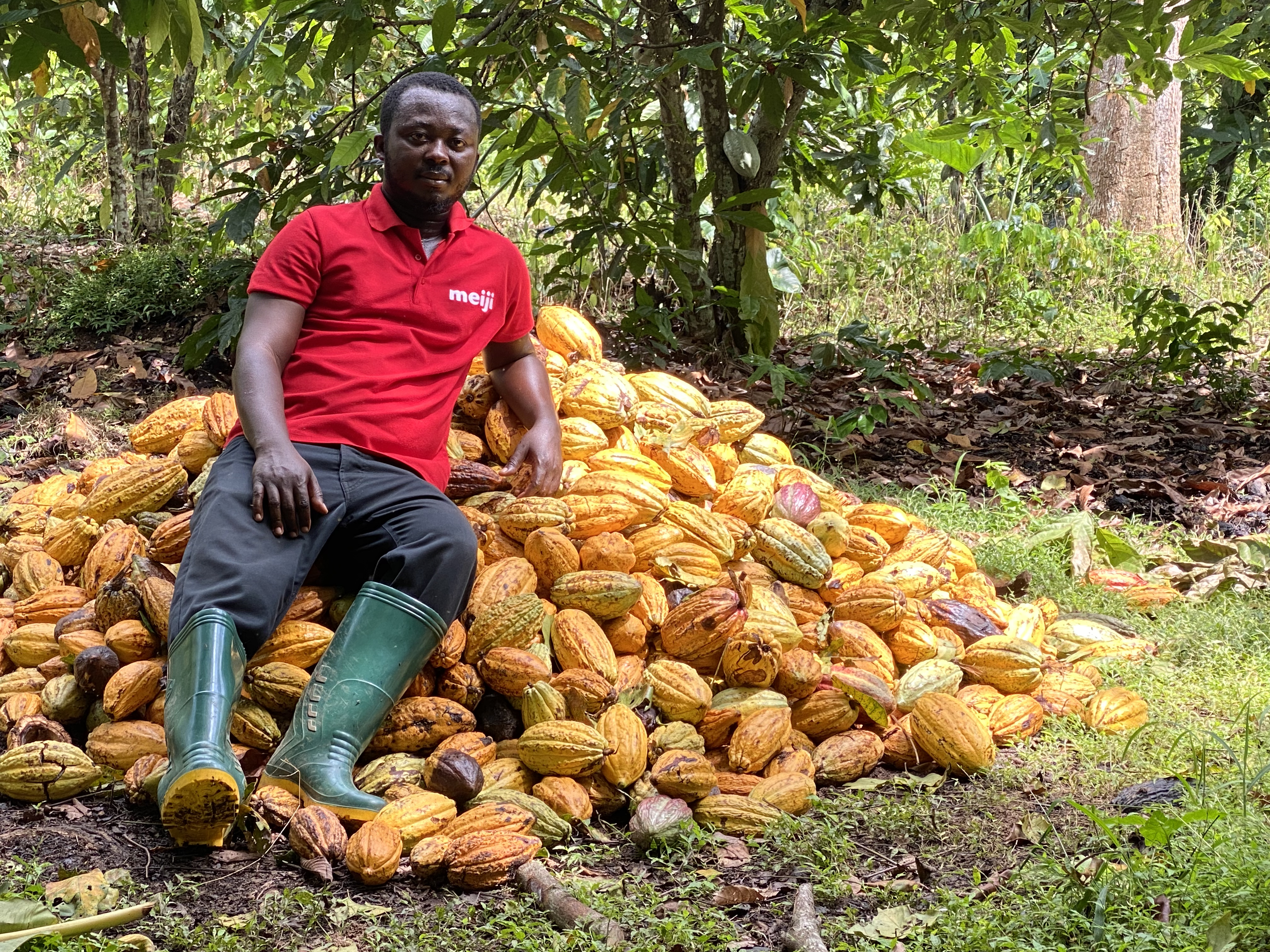 More resources and support
More resources and support
If schools or churches in Yorkshire are looking to become Fairtrade institutions, many organisations and resources can provide valuable support. This is not an exhaustive list, but please find some below.
Fairtrade Yorkshire: Fairtrade Yorkshire is a regional network dedicated to promoting Fairtrade and advocating for trade justice. They offer guidance and support to various community groups, including schools and faith organisations, aiming to achieve Fairtrade status. Their website features news, events, and resources pertinent to Fairtrade activities in the region.
Fairtrade Foundation: The Fairtrade Foundation provides comprehensive resources for schools and places of worship aspiring to attain Fairtrade status.
- Fairtrade Schools: Offers a range of teaching materials, lesson plans, and activities to help schools integrate Fairtrade principles into their curriculum. They also provide a structured award system to recognise schools’ commitment to Fairtrade.
- Fairtrade Places of Worship: Guides faith communities through the process of becoming recognised Fairtrade Places of Worship, including steps to use and promote Fairtrade products within their congregations.
Local Fairtrade Groups: Yorkshire boasts numerous local Fairtrade groups that actively support schools and churches in their Fairtrade journeys. Engaging with these groups can provide tailored assistance and community connections. Do look for the local group in your area.
Fair and Funky: Based in Holmfirth, Fair and Funky is an organisation that delivers workshops and resources to schools, focusing on Fairtrade and sustainability. They have experience working with schools across Yorkshire to promote Fairtrade education.
Contacting Local Authorities: Many local councils in Yorkshire support Fairtrade initiatives and can provide information on local resources and events. For example, the City of York Council has information on York’s status as a Fairtrade City and related activities.
For more support, or to find out more, please contact David Greenwood-Haigh on david.ghaigh@gmail.com.